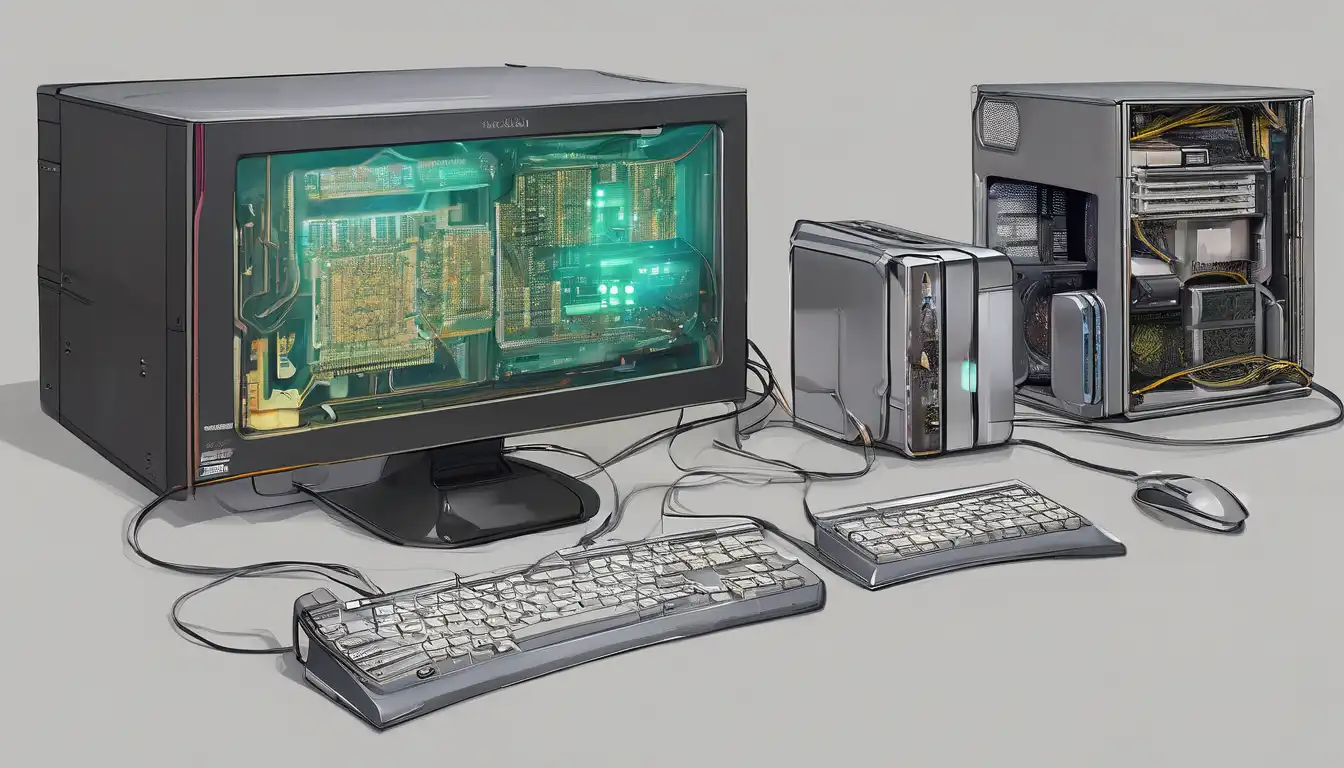Revolutionary Advances in Computer Hardware Technology
The landscape of computer hardware technology is undergoing unprecedented transformation, with innovations emerging at an accelerated pace. From quantum computing breakthroughs to AI-optimized processors, the latest developments are reshaping how we interact with technology and pushing the boundaries of computational power. These advancements not only enhance performance but also introduce new possibilities for industries ranging from healthcare to entertainment.
Next-Generation Processors and CPU Architecture
Modern processors are evolving beyond traditional multi-core designs, incorporating specialized accelerators for artificial intelligence and machine learning workloads. Companies like Intel and AMD are introducing heterogeneous computing architectures that combine high-performance cores with efficiency cores, optimizing power consumption while maintaining peak performance. The latest CPU innovations feature advanced manufacturing processes down to 3nm and 2nm scales, delivering significant improvements in transistor density and energy efficiency.
Key developments include:
- AI-accelerated instruction sets for real-time machine learning inference
- 3D stacking technology for increased cache memory
- Advanced power management systems for dynamic performance scaling
- Integrated security features at the hardware level
Graphics Processing Units (GPUs) Redefined
The GPU market has witnessed revolutionary changes with the introduction of ray tracing acceleration, AI-powered upscaling technologies, and unprecedented memory bandwidth. NVIDIA's latest RTX series and AMD's RDNA architecture have transformed gaming, professional visualization, and scientific computing. These GPUs now feature dedicated tensor cores for AI processing and real-time ray tracing capabilities that deliver photorealistic graphics.
Recent GPU innovations include:
- Real-time path tracing for cinematic-quality rendering
- AI-based super resolution technologies like DLSS and FSR
- Multi-chip module designs for scalable performance
- Advanced cooling solutions for sustained high-performance operation
Memory Technology Breakthroughs
Memory technology has seen significant advancements with DDR5 becoming mainstream, offering double the bandwidth of previous generations while operating at lower voltages. The emergence of GDDR6X and HBM3 memory has revolutionized graphics and high-performance computing applications. Non-volatile memory express (NVMe) storage has also evolved, with PCIe 5.0 SSDs delivering read/write speeds exceeding 10,000 MB/s.
Notable memory innovations include:
- 3D XPoint technology for persistent memory applications
- Advanced error correction codes for improved reliability
- Thermal throttling prevention mechanisms
- Multi-level cell technologies increasing storage density
Storage Solutions and Data Architecture
The storage industry continues to push boundaries with quad-level cell (QLC) and penta-level cell (PLC) NAND flash technologies, dramatically increasing storage density while reducing costs per gigabyte. Compute Express Link (CXL) technology is emerging as a game-changer, enabling coherent memory sharing between CPUs and accelerators. These innovations are crucial for data-intensive applications like artificial intelligence and big data analytics.
Storage advancements feature:
- Zoned namespace (ZNS) SSDs for optimized data placement
- Key-value SSDs for database acceleration
- Computational storage drives with integrated processing capabilities
- Advanced wear-leveling algorithms for extended lifespan
Cooling and Thermal Management Innovations
As component power densities increase, thermal management has become critical. Liquid cooling solutions have evolved from custom loops to all-in-one systems that are accessible to mainstream users. Phase-change cooling and vapor chamber technologies are becoming more prevalent in high-performance systems. Advanced thermal interface materials and graphene-based cooling solutions are also emerging, offering superior heat dissipation compared to traditional methods.
Cooling technology improvements include:
- Intelligent fan control algorithms based on real-time thermal monitoring
- Hybrid cooling systems combining air and liquid solutions
- Nanotechnology-based thermal compounds
- Active cooling solutions for memory modules
Connectivity and Interface Standards
The latest hardware innovations extend to connectivity standards, with USB4 becoming widespread and offering 40Gbps transfer speeds. Thunderbolt 4 continues to evolve, providing single-cable solutions for power, display, and data transfer. Wi-Fi 6E and the upcoming Wi-Fi 7 standards are revolutionizing wireless connectivity, while 2.5GbE and 10GbE networking are becoming more accessible for home and business users.
Connectivity advancements feature:
- PCIe 5.0 and upcoming PCIe 6.0 standards
- DisplayPort 2.0 with support for 8K resolution at high refresh rates
- Bluetooth 5.3 with improved audio quality and power efficiency
- Advanced power delivery specifications for faster charging
Emerging Technologies and Future Trends
Looking ahead, several emerging technologies promise to redefine computer hardware. Quantum computing processors are advancing rapidly, with companies developing practical quantum processing units (QPUs). Neuromorphic computing chips that mimic the human brain's neural structure are showing promise for specific AI applications. Photonic computing, which uses light instead of electricity, represents another frontier with potential for dramatically increased speeds and reduced power consumption.
Future hardware trends include:
- Chiplet-based designs for modular scalability
- Advanced packaging technologies like silicon interposers
- Hardware-level security features against emerging threats
- Sustainable computing initiatives focusing on energy efficiency
Impact on Various Industries
These hardware innovations are transforming multiple sectors. In healthcare, advanced processors enable real-time medical imaging and genomic analysis. The automotive industry benefits from powerful computing platforms for autonomous driving systems. Entertainment and gaming experience unprecedented realism through advanced graphics technologies. Scientific research accelerates with specialized hardware for complex simulations and data analysis.
The continuous evolution of computer hardware technology ensures that computing power will continue to grow while becoming more energy-efficient and accessible. As these innovations mature and become mainstream, they will enable new applications and experiences that were previously unimaginable, driving progress across all aspects of modern life.
